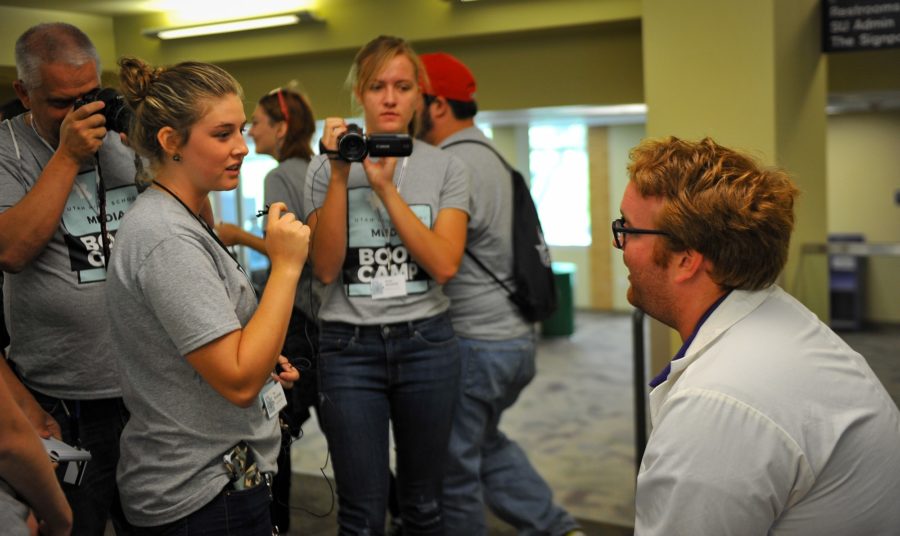This past weekend saw the release of “Gravity,” a sci-fi thriller starring Sandra Bullock and George Clooney as the only onscreen actors having a thrilling time in space. The trailers gave us an eerie type of feeling, like looking into a dark well and expecting to see something staring back. But we’re not here to review the film, so no spoilers.
Instead, we’re here to talk about science.
In practically any movie nowadays, it’s safe to say you shouldn’t believe everything you see or hear. That scientific jargon the token genius character spouts out like days of the week might sound impressive, but it’s not always based on fact. That particular moment based entirely on a science-y sort of theory in the movie’s climax? Probably scientifically impossible.
But hey, we’re not sitting through two-plus hours of movie for a science lesson. Most of the time, it’s obvious that the movie science is worth as much as a teen tabloid trying to convince everyone Miley Cyrus is an android. And who cares? We want action. We want drama. We want characters to root for and cry over.
Or should we want the best of both worlds — movies based as much in fact as they are in aesthetic appeal? On the one hand, you have a bit of misinformation that may or may not go on to affect a larger part of society. On the other hand, if it weren’t for creators pushing science and fact to the limit in fiction, we might not have some of the technology or concepts we enjoy today. We live in the science fiction of yesterday. (Just maybe not the science fiction of “Back to the Future.”)
Friends who have seen “Gravity” tell us that the movie was great, which is believable, considering the positive reviews it’s raking in. The science, though . . . not so much. Even those involved with the movie admitted they’d knowingly picked and pulled at certain facts to make the plot work. For the majority of audiences, those little inconsistencies shouldn’t detract from enjoying the movie. And, you know, if you look into the details in “Gravity,” the filmmakers certainly did their research.
However, in a world where many people will believe anything they see on a screen, fudging facts maybe isn’t something we should take so lightly, even if it is in the name of telling a great story. If something looks plausible enough, then people are likely to buy into it. And when it’s presented in such an appealing format with well-known actors in a modern-day or soon-ish future, it’s much easier to remember, repeat and spread. That’s how urban myths and rumors get started, folks.
In the case of “Gravity,” it’s likely not going to hurt anything. How many people are going to be going out in space any time soon? The movie might have made hanging out above Earth a little less appealing, but it’s not going to cause a rise in potentially damaging misinformation and panic on the level of “The War of the Worlds” — everyone who heard the original radio broadcast thought aliens really were invading. It’s probably not going to affect how many little kids want to grow up to be astronauts.
We’re not saying movies should be pressured to be 100 percent scientifically accurate 100 percent of the time. Really, they shouldn’t be. We might miss out on more important themes or concepts that need a bit of blurring the line between fact and fiction. But there is a need for audience awareness and perhaps a chance for developing a smarter, more critically thinking society. Maybe the next time you see a movie, play a video game or read a book with a little more science than you can understand, look it up. Check it out. And spread the word. You can never go wrong with a bit of fact. And if it isn’t fact? Well, maybe one day it will be. But we’ll never know if you take it for granted.



















